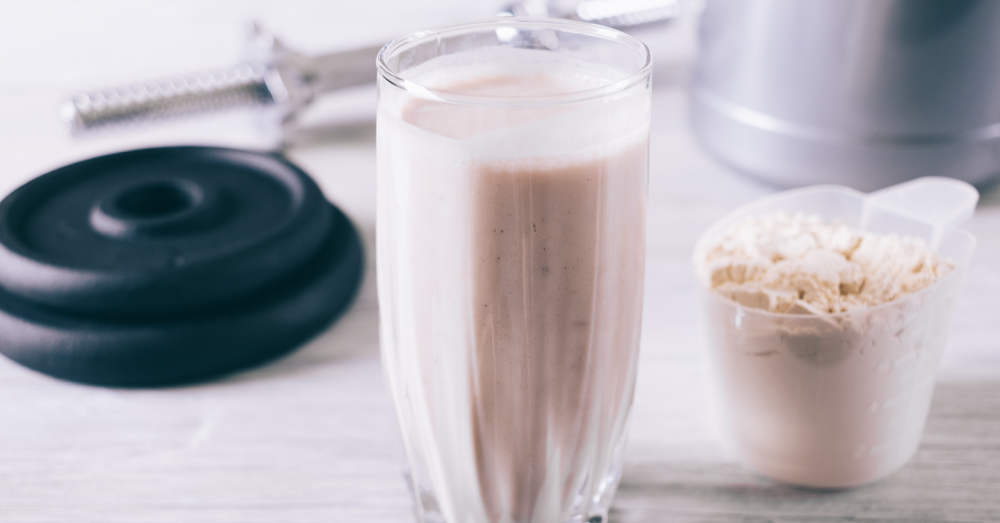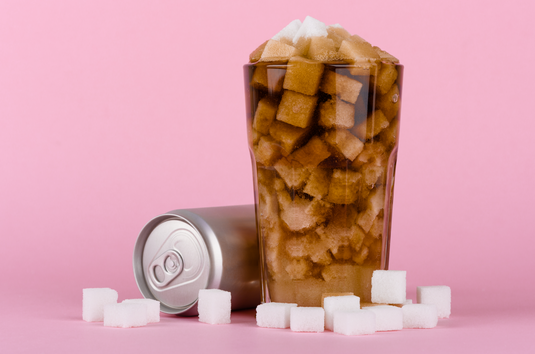La protéine de lactosérum est-elle vraiment la meilleure ?

Que votre objectif soit de prendre du muscle en salle ou de perdre quelques kilos, l'entraînement peut vous aider à y parvenir. Mais le type d'entraînement est important. Pour prendre du muscle, l'entraînement sera différent de celui pour perdre du poids.
Il en va de même pour la nutrition. Ce que vous mangez, comment et quand vous mangez peut avoir un impact important sur votre perte de poids ou votre prise de masse.
Et croyez-le ou non, cela inclut aussi les protéines. Les protéines ont été considérées comme un complément universel, mais différentes sources de protéines ont des effets différents sur l'organisme.
La whey est sans doute la protéine post-entraînement la plus populaire. Mais est-elle vraiment la meilleure ? C'est possible, mais cela dépend de vos objectifs.
Si vous souhaitez nourrir vos muscles lorsqu'ils sont affamés après l'entraînement, pensez à la whey. La whey est idéale pour favoriser la synthèse des protéines musculaires, ce qui revient à dire qu'elle rend vos muscles volumineux et forts.
La whey a cet effet grâce à son action rapide dans l'organisme (elle est digérée en environ une heure). Cette rapidité d'action la rend utile pour favoriser la réparation et la régénération musculaires après l'entraînement.
Quand prendre des protéines de lactosérum pour favoriser la croissance musculaire :
Comment choisir une poudre de protéine de lactosérum :
Si vous cherchez un coup de pouce pour perdre du poids, ou si vous souhaitez vous sentir plus rassasié entre les repas et éviter la fameuse faim, ne cherchez pas plus loin que la caséine, une autre protéine présente dans le lait. En effet, 80 % des protéines du lait proviennent de la caséine !
Bien que le lactosérum soit considéré comme une protéine « rapide », la caséine est digérée plus lentement par l'organisme [1] . Ceci est pratique pour se sentir plus rassasié et manger moins entre les repas. Des études ont également montré que la caséine pourrait être encore plus efficace que le lactosérum pour maintenir la masse maigre, favoriser la perte de graisse et même améliorer la force musculaire [2] .
Dans une autre étude, des chercheurs ont examiné l'impact des yaourts, riches en caséine, sur le contrôle de l'appétit. Ils ont constaté qu'un yaourt grec (à base de lait entier et contenant 24 grammes de protéines) en collation l'après-midi réduisait la faim et augmentait la sensation de satiété par rapport à des en-cas plus faibles en protéines.
Il a été suggéré que la consommation de lait pourrait favoriser l’inflammation dans le corps – mais des études d’intervention humaine utilisant la protéine de caséine ont montré que ce n’est pas vrai [3] !
Quand prendre des protéines à base de caséine pour augmenter la satiété :
Que rechercher dans une protéine de caséine :
C'est pourquoi nous avons créé des protéines de yaourt grec fermenté+, qui contiennent 25 grammes d'une protéine riche en caséine fabriquée à partir de lait provenant de sources conscientes et entièrement fermenté.
Les produits laitiers peuvent être nocifs pour l'estomac, et de nombreuses personnes les évitent car ils peuvent provoquer des troubles digestifs comme des gaz et des ballonnements. Nous croyons en un monde sans troubles digestifs ; pour surmonter ces effets plutôt désagréables, nous avons été intrigués par les conclusions de la recherche.
Les chercheurs ont régulièrement constaté que les personnes intolérantes au lactose tolèrent plus facilement le lait fermenté que le lait non fermenté [4] .
Voici pourquoi : la fermentation est un processus étonnant qui améliore la digestibilité et l'absorption des protéines en libérant des nutriments comme les vitamines, les minéraux et les acides aminés. Elle peut même amplifier la valeur nutritionnelle des aliments en concentrant certains nutriments.
Parfois, la fermentation peut même produire de nouveaux nutriments, en grande quantité. Une étude a révélé que la fermentation du lait créait 236 nouvelles structures protéiques, appelées peptides, à partir de la caséine [5] . Ces nutriments peuvent contribuer à la santé digestive en stimulant et en renforçant l'intestin, et en favorisant une écologie bactérienne et un organisme sains.
Alors, la whey est-elle vraiment la meilleure option ? Cela dépend de vos objectifs : si vous souhaitez développer votre masse musculaire, oui ! Mais si vous souhaitez vous sentir rassasié entre les repas et favoriser la perte de poids, optez pour la caséine, surtout si elle est fabriquée à partir de lait de vaches nourries à l'herbe et fermentée pour une absorption optimale.
Sources
[1] Demling. Effet d'un régime hypocalorique, d'un apport accru en protéines et d'un entraînement de résistance sur la prise de masse maigre et la perte de masse grasse. Ann Nutr Metab. 2000;44(1):21-9.
[2] Demling
[3] Bohl, et al. Les protéines de lactosérum et de caséine ainsi que les acides gras saturés à chaîne moyenne du lait n'augmentent pas l'inflammation légère chez les adultes souffrant d'obésité abdominale. Rev Diabet Stud. Été-Automne 2016 ; 13(2-3) : 148-157
[4] Lee H, et al. Facteurs affectant la qualité nutritionnelle du yaourt. J Dairy Sci 1988;71:3203-3213.
[5] Ebner et al. Le profilage peptidique du kéfir bovin révèle la libération de 236 peptides uniques à partir des caséines lors de sa production par culture de démarrage ou par grains de kéfir. J Proteomics. 18 mars 2015 ; 117 : 41-57
Il en va de même pour la nutrition. Ce que vous mangez, comment et quand vous mangez peut avoir un impact important sur votre perte de poids ou votre prise de masse.
Et croyez-le ou non, cela inclut aussi les protéines. Les protéines ont été considérées comme un complément universel, mais différentes sources de protéines ont des effets différents sur l'organisme.
La whey est sans doute la protéine post-entraînement la plus populaire. Mais est-elle vraiment la meilleure ? C'est possible, mais cela dépend de vos objectifs.
Voulez-vous gagner du muscle ?
Si vous souhaitez nourrir vos muscles lorsqu'ils sont affamés après l'entraînement, pensez à la whey. La whey est idéale pour favoriser la synthèse des protéines musculaires, ce qui revient à dire qu'elle rend vos muscles volumineux et forts.
La whey a cet effet grâce à son action rapide dans l'organisme (elle est digérée en environ une heure). Cette rapidité d'action la rend utile pour favoriser la réparation et la régénération musculaires après l'entraînement.
Quand prendre des protéines de lactosérum pour favoriser la croissance musculaire :
- 15 à 30 minutes avant une séance d'entraînement pour augmenter la force et l'endurance
- Dans l'heure qui suit votre séance de résistance pour reconstituer vos muscles
Comment choisir une poudre de protéine de lactosérum :
- Les protéines de lactosérum se présentent sous 3 formes : concentré, isolat et hydrolysat
- Recherchez une protéine de lactosérum sous forme d'isolat, riche en protéines (au moins 90 %) et digérée rapidement, ce qui la rend idéale avant et après l'entraînement.
- Assurez-vous que le lactosérum provient de lait nourri à l'herbe et ne contient pas une longue liste d'additifs
Voulez-vous perdre du poids ?
Si vous cherchez un coup de pouce pour perdre du poids, ou si vous souhaitez vous sentir plus rassasié entre les repas et éviter la fameuse faim, ne cherchez pas plus loin que la caséine, une autre protéine présente dans le lait. En effet, 80 % des protéines du lait proviennent de la caséine !
Bien que le lactosérum soit considéré comme une protéine « rapide », la caséine est digérée plus lentement par l'organisme [1] . Ceci est pratique pour se sentir plus rassasié et manger moins entre les repas. Des études ont également montré que la caséine pourrait être encore plus efficace que le lactosérum pour maintenir la masse maigre, favoriser la perte de graisse et même améliorer la force musculaire [2] .
Dans une autre étude, des chercheurs ont examiné l'impact des yaourts, riches en caséine, sur le contrôle de l'appétit. Ils ont constaté qu'un yaourt grec (à base de lait entier et contenant 24 grammes de protéines) en collation l'après-midi réduisait la faim et augmentait la sensation de satiété par rapport à des en-cas plus faibles en protéines.
Clarifier la confusion au sujet de la caséine
Il a été suggéré que la consommation de lait pourrait favoriser l’inflammation dans le corps – mais des études d’intervention humaine utilisant la protéine de caséine ont montré que ce n’est pas vrai [3] !
Quand prendre des protéines à base de caséine pour augmenter la satiété :
- Pour le petit-déjeuner, mixé dans un smoothie avec des légumes verts, un peu de fruits et une source de matières grasses
- En collation entre les repas, mélangé avec de l'eau ou du lait végétal
Que rechercher dans une protéine de caséine :
- Recherchez une protéine fabriquée à partir de lait comme ingrédient entier et contenant le rapport naturel de lactosérum et de caséine présent dans le lait
- Assurez-vous que le lait provient de vaches élevées, élevées en pâturage et cultivées dans des laiteries engagées dans des pratiques durables – et qu'il est exempt d'hormones, d'antibiotiques et d'OGM
- Recherchez une protéine de caséine fermentée pour la rendre plus facile à digérer et à absorber
C'est pourquoi nous avons créé des protéines de yaourt grec fermenté+, qui contiennent 25 grammes d'une protéine riche en caséine fabriquée à partir de lait provenant de sources conscientes et entièrement fermenté.
Parlons de la fermentation
Les produits laitiers peuvent être nocifs pour l'estomac, et de nombreuses personnes les évitent car ils peuvent provoquer des troubles digestifs comme des gaz et des ballonnements. Nous croyons en un monde sans troubles digestifs ; pour surmonter ces effets plutôt désagréables, nous avons été intrigués par les conclusions de la recherche.
Les chercheurs ont régulièrement constaté que les personnes intolérantes au lactose tolèrent plus facilement le lait fermenté que le lait non fermenté [4] .
Voici pourquoi : la fermentation est un processus étonnant qui améliore la digestibilité et l'absorption des protéines en libérant des nutriments comme les vitamines, les minéraux et les acides aminés. Elle peut même amplifier la valeur nutritionnelle des aliments en concentrant certains nutriments.
Parfois, la fermentation peut même produire de nouveaux nutriments, en grande quantité. Une étude a révélé que la fermentation du lait créait 236 nouvelles structures protéiques, appelées peptides, à partir de la caséine [5] . Ces nutriments peuvent contribuer à la santé digestive en stimulant et en renforçant l'intestin, et en favorisant une écologie bactérienne et un organisme sains.
Alors, la whey est-elle vraiment la meilleure option ? Cela dépend de vos objectifs : si vous souhaitez développer votre masse musculaire, oui ! Mais si vous souhaitez vous sentir rassasié entre les repas et favoriser la perte de poids, optez pour la caséine, surtout si elle est fabriquée à partir de lait de vaches nourries à l'herbe et fermentée pour une absorption optimale.
Sources
[1] Demling. Effet d'un régime hypocalorique, d'un apport accru en protéines et d'un entraînement de résistance sur la prise de masse maigre et la perte de masse grasse. Ann Nutr Metab. 2000;44(1):21-9.
[2] Demling
[3] Bohl, et al. Les protéines de lactosérum et de caséine ainsi que les acides gras saturés à chaîne moyenne du lait n'augmentent pas l'inflammation légère chez les adultes souffrant d'obésité abdominale. Rev Diabet Stud. Été-Automne 2016 ; 13(2-3) : 148-157
[4] Lee H, et al. Facteurs affectant la qualité nutritionnelle du yaourt. J Dairy Sci 1988;71:3203-3213.
[5] Ebner et al. Le profilage peptidique du kéfir bovin révèle la libération de 236 peptides uniques à partir des caséines lors de sa production par culture de démarrage ou par grains de kéfir. J Proteomics. 18 mars 2015 ; 117 : 41-57

















































